
Judge denies anonymity for victim of forced abortion
Cassy Cooke
·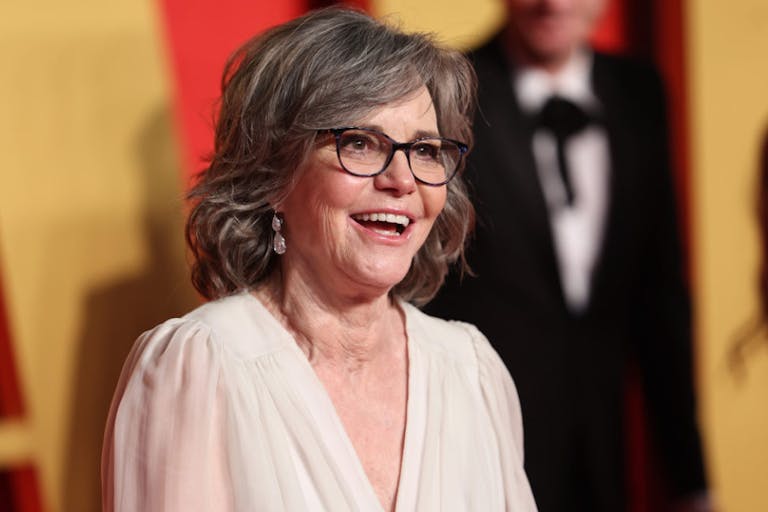
Why Sally Field’s ‘hideous’ abortion and ‘molestation’ story shouldn’t be used to promote more death
Actress Sally Field is using the story of her “beyond hideous” illegal abortion to advocate for Vice President Kamala Harris in the upcoming election. In an Instagram post urging people to vote in favor of “reproductive freedom,” she detailed the sexual abuse she suffered at the hands of an abortion worker, and how “fate” stepped in a few months after her abortion when she landed her famous role of “Gidget.”
She urged listeners, “We can’t go back. We can’t go back. We have to all stand up and fight.”
In 1964, Fields traveled to Tijuana, Mexico, for an illegal abortion. She was just 17 years old. Her family doctor drove her, along with his wife and Field’s mother, to a “scrungy” street in Tijuana where she was handed a bag of cash and told to go into the facility and come right back after the abortion was over.
Field’s story is not unlike that of other young girls who turn to abortion. Field was young, had no money, no support, and no hope for her future. “I had no choices in my life,” she said on Instagram. “I didn’t have a lot of family support in any way, or finances. I’d graduated from high school but had — no one ever said, ‘Go. How about college?’ I had nothing. I didn’t know what was going to be and then, I found out I was pregnant.”
‘He was molesting me’
After entering the facility for the abortion, she was given no anesthesia, but “puffs of ether” that left her arms and legs feeling “numb and weird” and made her vulnerable to abuse.
“It was beyond hideous and life-altering,” she said, adding, “I felt everything, how much pain I was in, and then I realized that the technician was actually molesting me. So I had to figure out, how can I make my arms move to push him away. And you know, so it was just, you know, this absolute pit of shame and then, when it was finished they said, ‘Go, go, go, go, go, go!’ like the building was on fire. And they didn’t want me there. It was illegal.”
Abuse of patients during legal abortions
But Field’s story is very similar to the legal abortion stories that began to come out of U.S. abortion facilities when the Supreme Court ruled to legalize abortion in Roe v. Wade in 1973. Women have been sexually abused at legal abortion facilities just as Field was in Mexico.
Once one of the most prominent abortionists in Arizona, Brian Finkel is currently in jail after being found guilty of 22 counts of felony sexual abuse on his abortion patients. More than 100 women told police that he had sexually assaulted them when they were in his office.
Finkel is not an outlier. Life Dynamics’ report on America’s Carefully Hidden Sex Scandal details 30 abortionists who have been accused or convicted of the sexual abuse of patients. And many accounts of horrific sexual abuse suffered by legal abortion patients are also chronicled in the late Mark Crutcher’s book, “Lime 5.”
Women have for decades said they “felt like cattle” and that abortion facility staff “wanted me out the door as soon as I got in the exam room.” Women said they “felt rushed and the staff came off as uncaring.” But they weren’t rushed and herded out the door so the facility could keep from getting caught doing illegal abortions; they were rushed so that the facility and abortionist could profit from as many abortions as possible.
In fact, women are still experiencing horrific things because of legal abortion, with many leaving Google Reviews about frightening injuries and even abortion coercion they’ve experienced at the hands of industry leader Planned Parenthood.
One former Planned Parenthood manager, Ramona Treviño, said, “It was a struggle because I felt like Planned Parenthood treated women like cattle. We talked about reducing the amount of time that we saw … our new patients.”
Another former manager, Sue Thayer, explained in an interview with Live Action, “Over the years I worked there … up went abortion goals and all the other goals we were required to meet. The nurse practitioner that had been there four days a week was now there two hours a week, but we were still seeing the same amount of clients. It felt wrong.”
“Women were just herded through,” she said.
Article continues below
Dear Reader,
In 2026, Live Action is heading straight where the battle is fiercest: college campuses.
We have a bold initiative to establish 100 Live Action campus chapters within the next year, and your partnership will make it a success!
Your support today will help train and equip young leaders, bring Live Action’s educational content into academic environments, host on-campus events and debates, and empower students to challenge the pro-abortion status quo with truth and compassion.
Invest in pro-life grassroots outreach and cultural formation with your TRIPLED year-end gift!
‘Shame’
Despite admitting, “I still feel very shamed about it, because I was raised in the 50s and you know, it’s ingrained in me,” Field also said, “It’s one of the reasons why so many of us are supporting Kamala Harris and Tim Walz.”
But any lingering feelings of shame she has over her abortion could have to do more with the fact that abortion is a destructive act with one goal — to ensure an innocent human child dies. Many post-abortive women experience feelings of shame, regardless of the decade or environment in which they were raised. Many go on to suffer from abortion trauma and regret, despite the fact that they are told they should feel “empowered” for exercising their “reproductive freedom.” Instead, it chained them to years or even decades of excruciating emotional pain. See some of their stories at Live Action’s “Can’t Stay Silent” website.
Still, Field urged voters to support abortion access. “It’s beyond how you can go back to that and do that to our little girls and our young women and not have respect and regard for their health and their own decisions about whether they feel they’re able to give birth to a child at that time,” she said.
This attitude towards abortion offers no respect to the children being killed, or the 64% of post-abortive women who say they were pressured into abortions they didn’t truly want.
This is what she wants to fight in favor of:
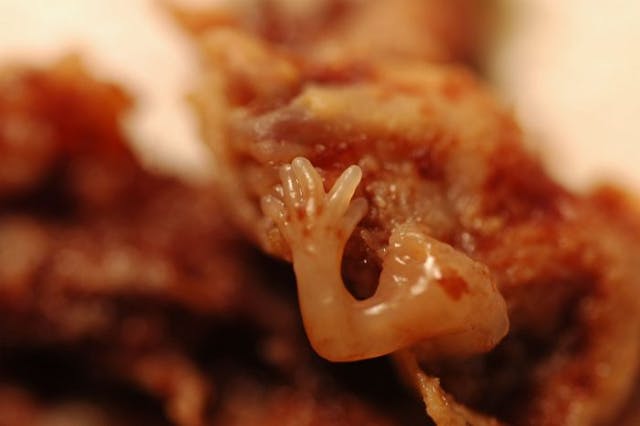
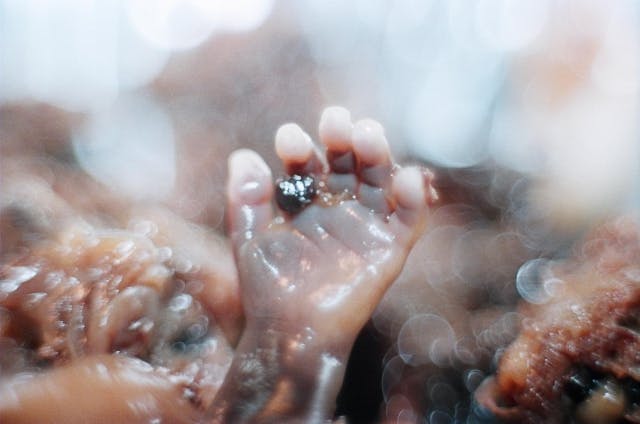
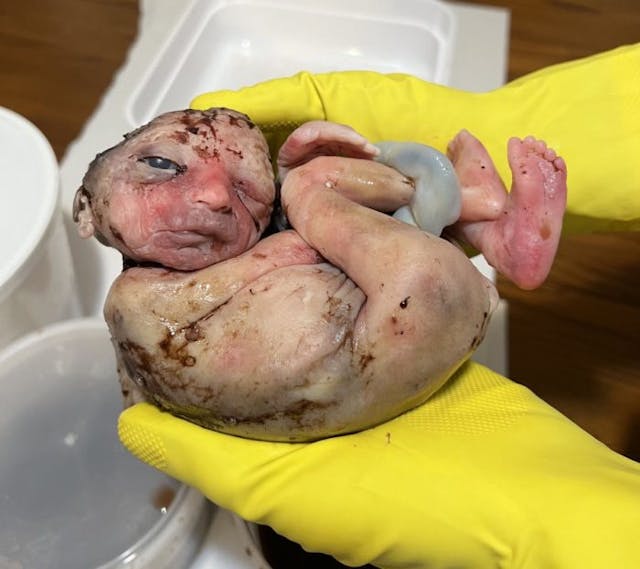
‘Fate reached in’
Despite the sexual abuse Field suffered during her abortion, she appeared to give a nod to the abortion for her budding career.
“Fate, something glorious outside of ourselves, whatever you believe, reached in and a few months after that, I began auditions. I didn’t have an agent. I wasn’t, you know, I wasn’t really an actor. I’d been doing it in high school constantly,” she said. “And I began auditioning and by the end of that year, I was Gidget.”
Gidget was the all-American girl next door, and Field quickly became America’s sweetheart. The public knew nothing of her abortion, but she said that made her feel even more like an all-American girl.
“I was the all-American girl next door because so many young women, my generation of women, were going through this,” Field explained. “And these are the things that women are going through now, when they’re trying to get to another state, they don’t have the money, they don’t have the means, they don’t know where they’re going.”
Hundreds of girls and women have died as a result of legal abortion, with the increasingly available abortion pill implicated in some cases. And the more it is promoted, the greater the likelihood of serious consequences.
Abortion should not be a rite of passage among America’s teenage girls. Instead of pushing for more girls to experience abortions, Field should be advocating for better resources and programs to build stronger families, support single mothers and their children, and teach teens about the benefits of abstaining from sex until marriage.
Editor’s Note: Abortion trauma can manifest itself in many ways. If you suspect you may be suffering from a past abortion, click here for resources that can help.
Live Action News is pro-life news and commentary from a pro-life perspective.
Contact editor@liveaction.org for questions, corrections, or if you are seeking permission to reprint any Live Action News content.
Guest Articles: To submit a guest article to Live Action News, email editor@liveaction.org with an attached Word document of 800-1000 words. Please also attach any photos relevant to your submission if applicable. If your submission is accepted for publication, you will be notified within three weeks. Guest articles are not compensated (see our Open License Agreement). Thank you for your interest in Live Action News!

Cassy Cooke
·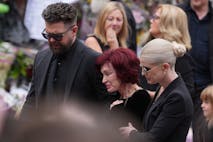
Pop Culture
Cassy Cooke
·
Pop Culture
Cassy Cooke
·
Pop Culture
Nancy Flanders
·
Pop Culture
Cassy Cooke
·
Pop Culture
Cassy Cooke
·
Politics
Nancy Flanders
·
Human Interest
Nancy Flanders
·
Issues
Nancy Flanders
·
Human Interest
Nancy Flanders
·
Politics
Nancy Flanders
·